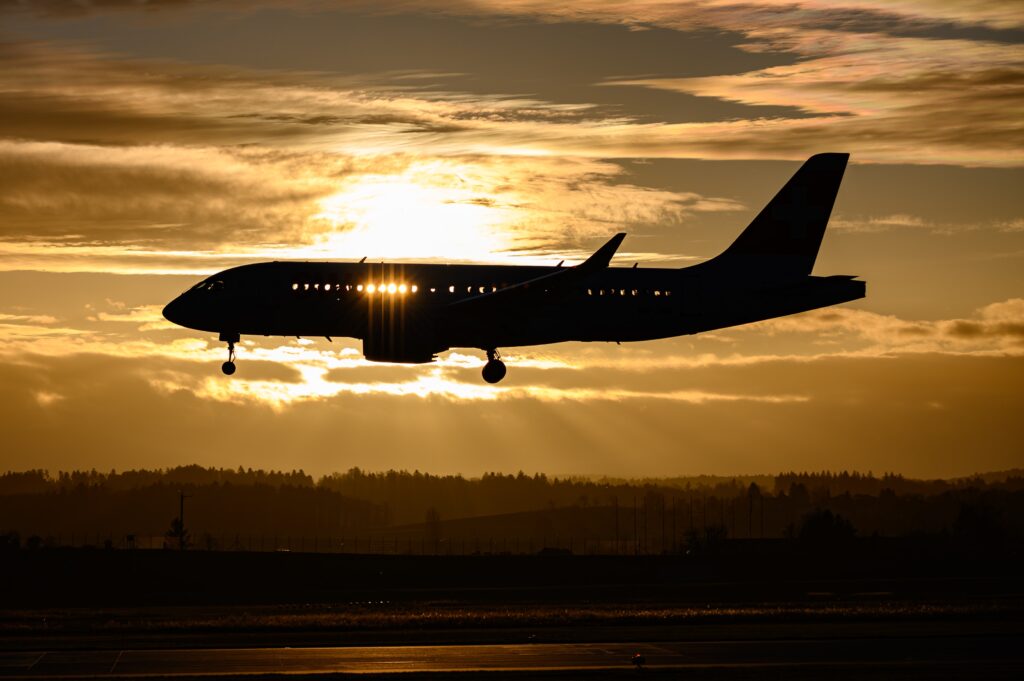Traveling for Races: Transforming Stress into Success

Traveling for races can be fun and exciting! It’s the perfect way to get a front-row seat to explore different parts of the world! Many athletes even schedule races based on their travel destination to enjoy extra time in the city they want to visit. Even though travel could be an allure, it can also become one of the leading causes for an athlete to feel stressed and anxious leading up to race day. Travel opens up a world of unknowns. Many times these unknowns are completely outside of the control of an athlete.For some, that can cause additional stress, making the taper to race day harder.
The Allure and Challenges of Traveling For Races
I have been fortunate to have the opportunity to travel for races. Some of my full and half marathons have included San Diego, Disney World, Philadelphia, and Washington, DC. I was so excited to travel for these races but needed to realize the additional time and energy regarding the specific aspects of travel. When I had kids, and they traveled with me and my husband, the stress increased even more! I experienced canceled flights, forgetting items, worrying about jet lag, and even getting sick on race day! Each race was a learning lesson and allowed me to understand the strategies I needed to take into account to help the travel days move as smoothly as possible while keeping my stress under control.
It’s important to recognize that regardless of travel, most athletes will experience stress and pre-competition anxiety in some shape or form. Elements outside of an athlete’s control that could raise stress levels unrelated to travel include potential weather, elevation, and course layout. Additional components could be related to an athlete’s self-doubt, pre-competition anxiety, and self-comparison to other athletes.
Understanding Stress Factors in an Athletes’ Journey
There are numerous stressors that athletes can experience when traveling for races. It is essential to realize that every athlete will have their response to these stressors. If traveling with a group of athletes, some might be very stressed about some situations, while others are not concerned. Always remember that your response is valid. Some common travel stressors include experiencing jet lag, adjusting to the new environment of sleeping in a hotel, not having access to their car, and relying on eating out instead of preparing their food. If you are becoming very stressed or anxious regarding race travel, it is best to consider following these suggestions.
Traveling For Races Strategies for Managing Stress Effectively
- Identify the specific element that is causing you to feel stressed. Travel stressors can include potential traffic or delayed /canceled flights. Others may be securing a passport, how to transport race day gear or lost baggage. Having to deal with time zone changes can also be stressful. The list is long and all are stressful.
- Reflect on how these elements are causing you to feel stressed without judging yourself. Consider what you notice about how your body is physically and psychologically responding when you think of the stressor. Is your heart rate increasing, your breathing rapid, sweating, etc.? Are you questioning plans, feeling uneasy, or experiencing an overall sense of worry or anxiety?
- Identify what you have control over and what you do not have control over. When an athlete feels that they have no control over a situation, they tell themselves that they do not have the resources to succeed. This will build up the stress response! Acknowledge the elements that are truly outside of your control regarding the travels for your race.
- Take control of the controllable. Now that you’ve identified the elements that are out of your control for race day, it’s time to strategize! Focus on what you can control regarding your travel! For example, you can’t control if your luggage is lost during the flight. What you can control in that situation is deciding to pack all your race day essentials in your carry-on. You’ll feel comfortable knowing that your must-haves are with you even if your luggage is lost! Another example would be realizing that you must rely on restaurants for most of your meals when traveling. If you need specific foods for race day or throughout the trip, consider packing non-perishable items. Locate the closest grocery store or order your food through a food delivery service straight to your hotel room!
From Stress to Success: Taking Ownership of Your Traveling For Races Experience
Most importantly, travel stress can be experienced by any athlete, whether it be a first-timer or an experienced traveler. Keeping a non-judgemental approach regarding responses to race travel is important. Feeling stressed does not mean an athlete is not prepared for the race. Instead, it means that there is an element of the travel causing the athlete to feel uneasy. Recognizing these stressors and developing specific strategies are key elements to taking control. Traveling for races can be stressful but these strategies will help athletes take ownership and control.
Advertisement

JoAnne Bullard is a Doctor of Sport and Performance Psychology and a Certified Mental Performance Consultant through the Association for Applied Sport Psychology. She is also a Certified Strength and Conditioning Specialist through the National Strength and Conditioning Association.
She serves as a tenured Associate Professor at Rowan University and is the owner of Absolute Fitness, LLC. Her goal is to provide a holistically applied approach for clients through performance psychology consulting. She has experience working with athletes of all ages, including endurance athletes, in individual and group sessions. Her research areas include mindfulness, performance anxiety, goal setting, coping strategies, and mental well-being of athletes.
She has completed five marathons, numerous half-marathons, and is always looking for her next race.








